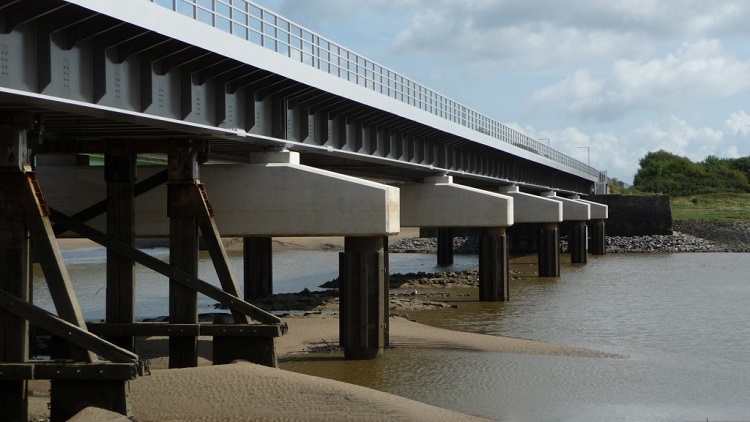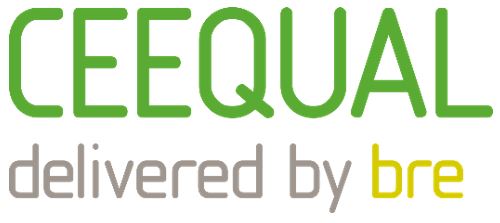CEEQUAL
 CEEQUAL assesses sustainability performance in civil engineering and public realm projects
CEEQUAL assesses sustainability performance in civil engineering and public realm projects
CEEQUAL is the evidence-based sustainability assessment, rating and awards scheme for all types of civil engineering, infrastructure, landscaping and public realm projects. Launched in 2003, it was established to deliver improved specification, design and construction of works in those areas, and challenges and encourages people to adopt more sustainable living solutions. Project managers may be better able to recognise good sustainability outcomes the earlier they engage with the scheme.
CEEQUAL uses rigorous evidence-based assessment criteria and external verification to provide a result that can be made public and used in publicity. In addition, integration of CEEQUAL in the development of projects and contracts can positively influence design and construction management and often leads to significantly better outcomes than would otherwise have been the case.
The scheme can deliver:
- More sustainable projects in civil engineering;
- Performance improvements;
- Better value and cost reductions;
- Commitment to sustainability best practice;
- Enhanced team collaboration and
- Benchmarking and knowledge sharing.
Developed originally by a team led by the Institution of Civil Engineers (ICE) and financial support from the UK Government and ICE, the original development was managed by Crane Environmental with support from government departments and agencies. Leading civil engineering consultants and contractors, as well as industry associations, also supported the scheme’s development, including CIRIA, the Association for Consultancy and Engineering (ACE) and the Civil Engineering Contractors’ Association (CECA).
The scheme was launched following industry-wide consultation and trialling, and went public in June 2004 with the publication of Version 3 of the Assessment Manual for Projects. CEEQUAL has since become an accepted UK industry scheme for assessing environmental and sustainability performance in civil engineering and public realm projects.
In 2011, CEEQUAL for International Projects was launched, as was CEEQUAL for Term Contracts which made the methodology available for all civil engineering, infrastructure, landscaping and public realm works. CEEQUAL launched an upgraded and extended version 5 in summer 2012
In November 2015, CEEQUAL became part of the BRE Group and operates alongside BREEAM, another leading sustainability assessment method for buildings, master planning and infrastructure. The move gives CEEQUAL a clear association with the BREEAM family of schemes.
In June 2019, BRE Global launched CEEQUAL Version 6 to support infrastructure project teams’ sustainability goals. It combines the technical content of the CEEQUAL and BREEAM Infrastructure methodologies, and builds upon the well-proven processes of the CEEQUAL approach to assessment.
The launch of Version 6 marks the closure of both BREEAM Infrastructure (Pilot) and CEEQUAL Version 5 schemes. To aid transition, teams already working on CEEQUAL but who have not yet registered have until 30 September 2019 to register their projects to Version 5. Those who have already registered on these schemes are able to continue on them.
For more information see: CEEQUAL version 6.
[edit] Related articles on Designing Buildings Wiki
- Building Research Establishment.
- BRE articles.
- BRE Trust.
- BREEAM.
- BREEAM and CEEQUAL.
- BREEAM and Tracker Plus.
- BREEAM associate online training.
- BREEAM In-Use International.
- BREEAM USA.
- BREEAM: Value multiplies while costs plummet.
- CEEQUAL version 6.
- Code for Sustainable Homes.
- Leadership in Energy and Environmental Design.
- Passivhaus.
- Ska rating.
- Sustainable Infrastructure Group's sustainable development goals workshop.
- WELL and BREEAM align.
Featured articles and news
Independent Building Control review panel
Five members of the newly established, Grenfell Tower Inquiry recommended, panel appointed.
ECA progress on Welsh Recharging Electrical Skills Charter
Working hard to make progress on the ‘asks’ of the Recharging Electrical Skills Charter at the Senedd in Wales.
A brief history from 1890s to 2020s.
CIOB and CORBON combine forces
To elevate professional standards in Nigeria’s construction industry.
Amendment to the GB Energy Bill welcomed by ECA
Move prevents nationally-owned energy company from investing in solar panels produced by modern slavery.
Gregor Harvie argues that AI is state-sanctioned theft of IP.
Heat pumps, vehicle chargers and heating appliances must be sold with smart functionality.
Experimental AI housing target help for councils
Experimental AI could help councils meet housing targets by digitising records.
New-style degrees set for reformed ARB accreditation
Following the ARB Tomorrow's Architects competency outcomes for Architects.
BSRIA Occupant Wellbeing survey BOW
Occupant satisfaction and wellbeing tool inc. physical environment, indoor facilities, functionality and accessibility.
Preserving, waterproofing and decorating buildings.
Many resources for visitors aswell as new features for members.
Using technology to empower communities
The Community data platform; capturing the DNA of a place and fostering participation, for better design.
Heat pump and wind turbine sound calculations for PDRs
MCS publish updated sound calculation standards for permitted development installations.
Homes England creates largest housing-led site in the North
Successful, 34 hectare land acquisition with the residential allocation now completed.
Scottish apprenticeship training proposals
General support although better accountability and transparency is sought.
The history of building regulations
A story of belated action in response to crisis.
Moisture, fire safety and emerging trends in living walls
How wet is your wall?
Current policy explained and newly published consultation by the UK and Welsh Governments.
British architecture 1919–39. Book review.
Conservation of listed prefabs in Moseley.
Energy industry calls for urgent reform.






























